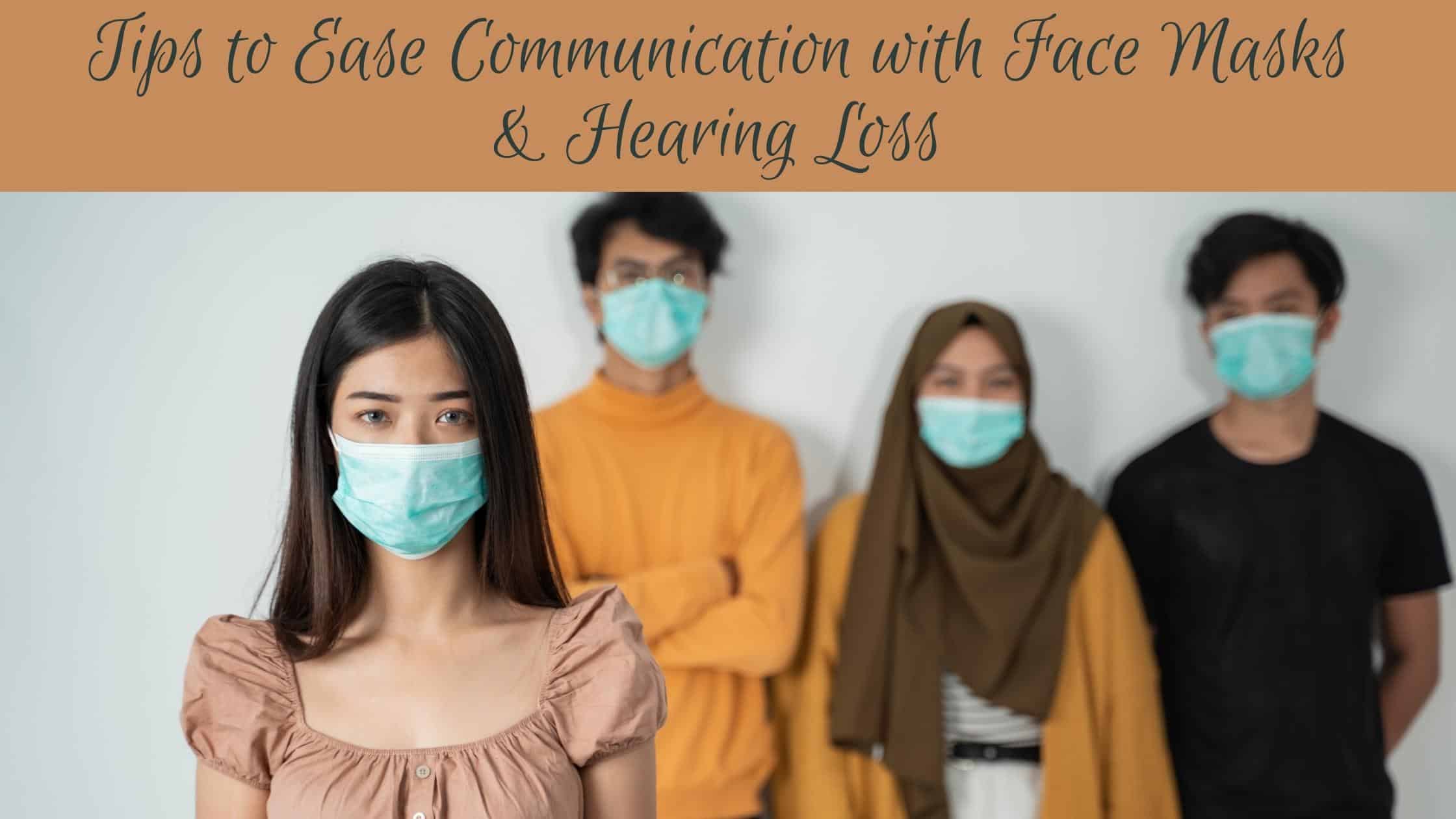
The COVID-19 pandemic has transformed our interactions with others. We’re now required to practice social distancing by keeping a distance of 6 feet between us and wearing face masks that cover our mouths and noses. Communicating with face masks may be a new experience for those with hearing loss. That’s why we’ve compiled a list of our favorite face mask communication tips for you.
The trouble with face masks when it comes to communication
You don’t just rely on sound to hear what’s being said if you have a hearing loss. To understand others during conversations, you also use body language, facial expressions, and even lip-reading. Since a mask covers so much of your face, you won’t be able to use these other cues to help you hear. Masks can also make it difficult to hear because they don’t fit well-over hearing aids.
The trouble with social distancing when it comes to communication
Physical separation can make it more difficult to understand others, and staying at a distance presents new obstacles for people who have hearing loss.
When people are standing right next to you, it’s already challenging to observe conversations or understand what they’re doing. It’s much more difficult to hear what’s being said when they’re 6 feet away. Since the person standing 6 feet away from you is still speaking at a regular volume, and the sound doesn’t travel very far, physical distance makes it harder to hear.
When the sound you want to hear is farther away, background sounds seem louder. Instead of focusing on the conversation you’re trying to hear, your brain may begin to pay more attention to the background noises.
We can’t lean in, turn our good ear towards our conversation partner, or use the other coping mechanisms we often use when they’re standing next to us when we’re 6 feet away from them. The distance makes it difficult to read their lips or see their facial expression.
Tips for Better Communication
Face masks present a unique set of challenges, but it is essential to wear them and protect your health! Here are a few options for successful communication:
- Ensure you have the other person’s attention before beginning a conversation, so they know you’re talking to them. Also, make sure you’re facing each other so you can see each other’s body language.
- Reduce background noise by turning off all noise sources, such as the television, music, and household appliances. Background noise makes it much more difficult to hear clearly and diverts the attention away from the discussion at hand. It also causes the brain to process more information, which can be exhausting. This also implies that you should stop conversing in noisy environments.
- Since face masks often mask sound and you’re standing at a distance, projecting your voice without shouting can help. Slowing down your speech will also help the other person process what you’re saying and ask for clarification if necessary.
- To compensate for your mouth being hidden, use nonverbal signals such as shaking your head, making hand motions, raising your eyebrows, and so on to convey better what you’re saying and how you’re feeling.
- Ensure everyone understands what you’re saying by checking in with the person(s) with whom you’re speaking regularly. This also encourages the other person to inquire whether there is something else they need to be clarified or whether you need to make any relevant changes.
How to wear a mask with hearing aids
Many masks are incompatible with hearing aids for those who wear them. If the masks loop over your ears where you wear a hearing aid or have a cochlear implant, it can interfere with the hearing device and make it fall out.
Many hearing aids and cochlear implant users have found success by attaching the mask loops to a headband rather than behind the ears. You could also buy masks with four strings, two on each side, that connect behind your head rather than looping behind your ears.
Don’t forget to treat your hearing loss.
Communication with face masks and social distancing will be much more complex if you have untreated hearing loss. By managing your hearing loss, it will be easier to understand others, mask or no mask. Contact us to learn more about your hearing aid choices and get your hearing tested.
